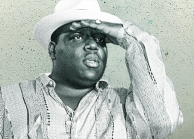The Supreme Court Will Almost Certainly Rule on Gay Marriage Again This Term

Photo by Spencer Platt/Getty Images
On Wednesday, the Supreme Court added several gay marriage cases for consideration at its Sept. 29 conference. The move suggests that the justices won’t let United States v. Windsor be their last word on marriage equality. It also reveals that the Supreme Court will almost certainly decide whether all gay marriage bans are unconstitutional by the end of this coming term.
Thus far, three courts of appeals have found state-level gay marriage bans to be unconstitutional, though they have used varying legal rationales. The 4th Circuit subjected the bans to strict scrutiny, the most stringent level of judicial review, because marriage is a “fundamental right” protected by the U.S. Constitution. The 10th Circuit went the same route—but one judge wrote a notable concurring opinion insisting that gay marriage bans don’t exhibit unconstitutional animus. The 7th Circuit, meanwhile, passed over the “fundamental right” question and performed a more basic equal protection analysis.
On Sept. 29, the court will consider each of these cases and possibly agree to hear one, two, or all three of them. (The justices can combine cases that present the same constitutional question.) In doing so, the court will essentially be forcing itself to resolve the chief civil rights issue of the decade—does the 14th Amendment protect gay people’s right to marriage?—by the end of the current term in late June 2015.
In addressing that question, the justices will also have to land on a precise legal rationale to explain their decision. The court might get ambitious and finally admit that gay people are a quasi-suspect class—in other words, a historically disfavored minority that has faced discrimination based on an immutable characteristic. If so, any law targeting gay people will be subject to heightened judicial scrutiny and must be invalidated unless it furthers a substantial government interest. Or the court might simply apply Kennedy’s vague animus test and decide that because gay marriage bans are motivated by hostility toward gay people, they violate the Constitution.
Either way, there will be no opportunity for the justices to punt on an arcane procedural matter this time around. They’re going to have to rule once and for all. As usual, the case will surely come down to the vote of Justice Anthony Kennedy. And the man who once wrote that a federal gay marriage ban “degrade[s]” and “demean[s]” gay couples doesn’t seem likely to betray the jurisprudential crusade that he helped to start.












